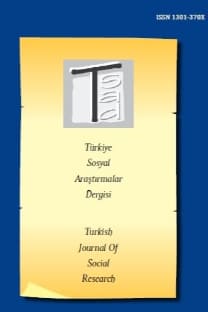I.DÜNYA SAVAŞI’NIN ARDINDAN YENİ DÜNYA DÜZENİNE DOĞRU: 1919 PARİS BARIŞ KONFERANSI
Büyük Savaşın ardından, Paris Barış Konferansı 1919 yılında barışın koşullarını belirlemek için 30'dan fazla ülke ve milletten gelen diplomatların ve temsilcilerin katılımıyla toplanmıştır. Konferans, galip müttefikler ile yenilen ittifak devletleri temsilcileri arasında sert münakaşalara sahne olmuştur. Aslen toplantı gündemine yön veren ve Büyük Dörtlü olarak ifade edilen Birleşik Krallık Başbakanı David Lloyd George; Amerika Birleşik Devletleri Başkanı Woodrow Wilson; Fransa Başbakanı Georges Clemenceau ve İtalya Başbakanı Vittorio Emanuele Orlando'nun temel çabaları, galip gelen devletlerin taleplerini ve kaygılarını seslendirirken, savaş sonrası Almanların hamlelerinin ve geleceğe dönük gizli niyetlerinin mümkün olduğunca önüne geçebilmektir.Bu makale Büyük Britanya, Fransa ve Amerika Birleşik Devletlerinin Alman meselesi konusundaki tutum, tavır ve taleplerini incelemektedir. Ayrıca Versay Antlaşması'nın oluşumu, içeriği, etkileri ve icrasıyla ilgili önemli görülen noktalara vurgu yapmaktadır. Üzerinden 100 yıla yakın bir zaman ve çok sayıda çalışma yapılmış olmasına rağmen tarihçiler ve uzman bilim insanları söz konusu antlaşmasının etkinliği, metotları ve etkileri üzerine halen tartışmalar yürütmektedir.Anahtar Kelimeler: Paris Barış Konferansı, Versay Antlaşması, Yeni Dünya Düzeni, Alman Meselesi
___
- ASHTON, N. J. and HELLEMA, D. (2000) “Hanging the Kaiser: Anglo-Dutch Relations and the Fate of Wilhelm II: 1918-20”, Diplomacy&Statecraft, 11 (2), p. 53-78.
- ASTER, S. (2008) "Appeasement: Before and After Revisionism", Diplomacy and Statecraft, 19 (2), p. 443–480.
- BAYCROFT, T. (2005) "The Versailles Settlement and Identity in the French Flanders", Diplomacy and Statecraft, 16 (8), p. 589–602.
- BELLAIS, R. and COULOMB F. (2008) "The Fight of a Citizen Economist for Peace and Prosperity", Defence and Peace Economics, Vol. 19(5), p. 361–371.
- FISCHER, C. (2005) "The Human Price of Reparations", Diplomacy and Statecraft, 16(1), p. 499–514.
- FRIED, M.B. (2005) "Analysis of Brockdorff-Rantzau’s cover letter to 'The Counter Proposals of the German Government to the Peace Terms' ", Diplomacy and Statecraft, 16: p. 403-416.
- GOLDSTEIN, E. and MCKERCHER, B.J.C. (2003) Power and Stability in British Foreign Policy, 1865-1965, Routledge.
- GOLDSTEIN, E. (2002) The First World War Peace Settlements: From Versailles to Locarno, 1919-1925, Longman; 1. Edition.
- JACKSON, P. (2006) "France and the Problems of Security and International Disarmament After the First World War", The Journal of Strategic Studies, Vol. 29, No. 2, p. 247 – 280.
- JOHNSON, G. (Edt.) (2005) The Foreign Office and British Diplomacy in the Twentieth Century, Routledge.
- KISSANE, B. (2003) "The Doctrine Of Self-Determination And The Irish Move To Independence:1916–1922", Journal of Political Ideologies, 8(3), p.327–346.
- LENTIN, A. (2004) "Maynard Keynes And The ‘Bamboozlement’ of Woodrow Wilson: What Really Happened At Paris? (Wilson, Lloyd George, Pensions And Pre-Armistice Agreement)", Diplomacy and Statecraft, 15(4), p. 725-763.
- LOWE, N. (1982) Mastering World History, Palgrave Macmillan.
- MACMILLAN, M. (2003) Paris 1919: Dünyayı Değiştiren Altı Ay (Çeviren: Belkıs Dişbudak), ODTU Yayıncılık.
- MAZOWER, M.; Karanlık Kıta: Avrupa’nın 20. Yüzyılı (Çev: Mehmet Moralı), (2008) İstanbul Bilgi Üniversitesi Yayınları, 2. Baskı, İstanbul.
- MCKERCHER, B.J.C. (2008) National Security and Imperial Defence: British Grand Strategy and Appeasement: 1920-1939, Diplomacy and Statecraft, 19 (8), p. 391–442.
- MOORHOUSE, R. (2005) "The Sore That Would Never Heal: The Genesis of the Polish Corridor", Diplomacy and Statecraft, 16 (6), p. 603–623.
- MULLIGAN, W. (2003) “The Reichswehr, The Republic and the Primacy of Foreign Policy, 1918–1923”, German History Vol. 21 No. 3, p. 347-370.
- NEILSON, K. (2006) Britain, Soviet Russia and the Collapse of the Versailles Order: 1919–1939, Cambridge University Press.
- NEVINS, A.ve COMMAGER, H. S. (2005) ABD Tarihi (Çev: Halil İnalcık), Doğu Batı Yayınları: İstanbul.
- O’RIORDAN, E. (2005) “The British Zone of Occupation in the Rhineland, Diplomacy and Statecraft”, Vol. 16 (4), p. 439–454.
- OBERDÖRFER, L. (2004) “The Danzig Question in British Foreign Policy, 1918–1920”, Diplomacy and Statecraft, Vol. 15(3), p. 573–592.
- PEUKERT, D. (1992) The Weimar Republic, Hill&Wang: New York.
- RIGA, L. and KENNEDY J. (2009) “Tolerant majorities, Loyal Minorities and ‘Ethnic Reversals’: Constructing Minority Rights at Versailles 1919” , Nations and Nationalism, Vol. 15(3), p. 461–482.
- SHARP, A. and FISCHER, C. (2005) “The Versailles Settlement: Enforcement Complience, Contested Identities”, Diplomacy and Statecraft, Vol. 16 (7), p. 419–442.
- STEVENSON, D. (2006) “Britain, France and the Origins of German Disarmament, 1916–1919”, The Journal of Strategic Studies, Vol. 29, No. 2, April, p. 195-224.
- TRACHTENBERG, M. (1979) “Reparation at the Paris Peace Conference”, The Journal of Modern History, Vol. 51(1) , p.24-55.
- WEBSTER, A. (2005) “Making Disarmament Work: The Implementation of the International Disarmament Provisions in the League of Nations Covenant”, Diplomacy and Statecraft, Vol. 16 (9), p. 551–569.
- ZWEIG, S. (2008) Dünün Dünyası, Can Sanat Yayınları: İstanbul.
- ISSN: 1301-370X
- Başlangıç: 2015
- Yayıncı: AKADEMİSYENLER BİRLİĞİ DERNEĞİ
Sayıdaki Diğer Makaleler
BİR ARTTIRILMIŞ GERÇEKLİK UYGULAMASININ GELİŞTİRİLMESİ VE ÖĞRENCİ GÖRÜŞLERİ
I. DÜNYA SAVAŞI'NIN ARDINDAN YENİDÜNYA DÜZENİNE DOĞRU: 1919 PARİS BARIŞ KONFERANSI
Ali Erhan ERTAN, Tevfik ORÇUN ÖZGÜN
Deniz MELANLIOĞLU, Tazegül Demir ATALAY
I.DÜNYA SAVAŞI’NIN ARDINDAN YENİ DÜNYA DÜZENİNE DOĞRU: 1919 PARİS BARIŞ KONFERANSI
THE SCOPE AND USE OF ESP IN FOREIGN AND TURKISH CONTEXT
NEY METOTLARINDAKİ MAKAM ANLATIMLARINDA YER ALAN ÖRNEK ESERLERİN İNCELENMESİ
ALKOL VE MADDE BAĞIMLILIĞI OLAN BİREYLERİN BAŞA ÇIKMA TUTUMLARI
Buğra YILDIRIM, Nihan OĞUZ, Engin FIRAT, Ercüment ERBAY
AVRUPA’DA YAŞAYAN TÜRKLERİN TÜRK TELEVİZYON YAYINLARI ve TÜRKÇE ÜZERİNE GÖRÜŞLERİ
